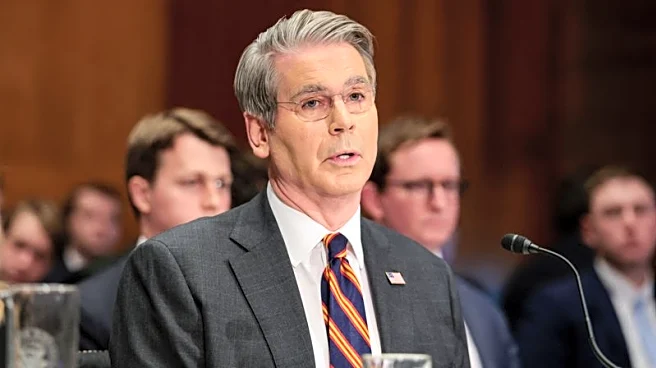What's Happening?
Lionel Messi has reportedly agreed to a contract extension with Inter Miami, ensuring he will finish his career in South Florida. While this news is celebrated by MLS and Miami fans, it also brings attention to the league's salary structure. Miami's roster, heavily reliant on high-profile players like Messi, Luis Suarez, and Sergio Busquets, exposes the limitations of MLS's current salary cap system. This structure allows significant spending on a few players, potentially leading to imbalanced team compositions.
Why It's Important?
Messi's extension underscores the need for MLS to reconsider its salary cap rules to allow for more balanced team building. The current system can lead to disparities in team performance, as seen with Miami's dominance when their star players perform well. Adjusting the salary structure could enable teams to distribute resources more evenly, enhancing competition and overall league quality. This change could attract more international talent and improve the league's global standing.
Beyond the Headlines
The situation with Messi and Inter Miami highlights broader issues within MLS regarding financial regulations and competitive balance. As the league seeks to grow and attract top talent, addressing these structural challenges is crucial. A more flexible salary system could lead to more dynamic and engaging matches, benefiting fans and stakeholders alike. The league's ability to adapt its financial model will be key to its long-term success and reputation in the global soccer landscape.











